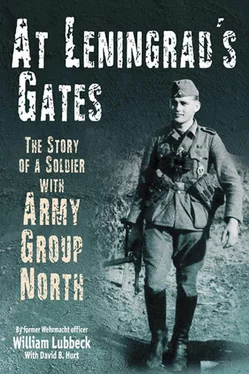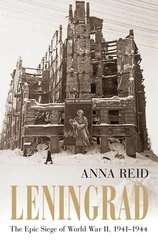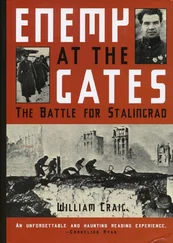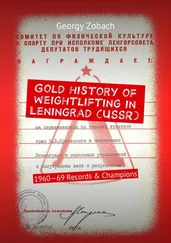While we had to dig the sugar beets out of the ground by hand and swing scythes to harvest the barley, rye, and wheat around the edges of our fields, we employed the forerunner of the combine to harvest most of the crop. Pulled along by horses, the combine cut the grain and spit out bundles. Following along behind it, we stacked about 15 or 20 bundles into upright piles about every 20 feet or so.
Feeding the fifteen or so hungry people gathered around our dining room table at mealtimes during the harvest also meant a lot of work inside the kitchen. Everything we cooked came straight from our fields or gardens. About twice a month the house was filled with the smell of bread baking in our clay-brick oven. After heating the large wood-fired oven for about half a day, my mother would shove in a dozen big lumps of dough, usually made from rye. Despite weighing about six to eight pounds each, these loaves never lasted very long with so many hungry workers around the farm.
Although most of our livestock were raised to be sold, some were retained for our own use. To this end, my family butchered a portion of our cattle once a year and several of our 100 to 200 pigs three or four times a year. Due to the lack of refrigeration, we had to preserve the majority of the meat by making it into sausage and bacon or by curing it.
In the meadows surrounding our village, we grazed our 15 to 20 cows. Some of our cow pastures had fences, but in other unfenced fields the cattle required monitoring to prevent them from wandering onto a neighbor’s property. When I reached the age of ten, my father began tasking me with the boring but simple job of keeping an eye on them. Though I took no pleasure in watching the cows, it was better than the monthly cleaning of the manure from their barns.
On one occasion, just after harvesting one of these unfenced pastures, we let the cows out to graze and I took up my post at the edge of the field. Lying back on a cushion of two-foot-high grass under a cool breeze, it was easy for me to pass the time staring up at the drifting clouds. This would last until five o’clock, when a three-engine Junkers passenger aircraft appeared up in the sky on its regularly scheduled flight, signaling the end of my day.
On this particular afternoon, my daydreaming in the grass turned into napping. As I snoozed, the unattended cows crossed into our neighbor’s pasture, a serious offense in a farming community. When my father learned of my negligence, he scolded me severely, “How could you let that happen? Now I must go talk to the neighbor.” Being a ten-year-old was no excuse.
In addition to our gardens, fields, and meadows, my family also possessed a couple of large apple orchards. Following school or during school vacations, I would climb up in the trees to pick apples. Munching the fruit and singing songs as I worked, life seemed pretty good to me. Only later did I realize the constant stress my parents endured in trying to operate our farm as a successful business.
While many Germans were Catholic, our family lived in a Lutheran region of the country. In my youth, religion was, however, more of an obligation than a source of spiritual fulfillment for me. Although my faith and involvement in church were not nearly as significant in my youth as they became later, they still played a more important role in my life than they did in the lives of most Germans.
My father’s family was not very religious, but my mother and her parents were involved in the Lutheran Church and possessed a strong Christian faith that shaped our spiritual upbringing. Although infrequently reading or studying the Bible when we were growing up, my siblings and I did receive a religious education at home and in our confirmation classes at church. We learned to follow the Bible’s teachings to tell the truth, and to work hard. We were taught to always consider the needs of those around us and remember that we have an obligation to them.
Because the local Lutheran pastor served several other villages at the same time, he only held services in Püggen every second Sunday. On these Sunday mornings, my family dressed in our best clothes and walked over to the small fieldstone church in Püggen. Seated in our family’s pew, we joined thirty or forty other people from six or seven local families in the community for an hour-long worship service. On special Sundays we would sometimes attend church in the nearby village of Rohrberg.
After the church service, our family would sit down at the dinner table for a formal family lunch, our largest meal of the week. We would refrain from eating until my mother sat down and recited the prayer, “Thank the Lord for He is good and His mercy endures forever.” Similarly, we waited to leave the table until she gave another prayer or otherwise dismissed us.
Over food, we would talk about the farm gossip in Püggen or politics, but there was not much banter unless it was of a very socially acceptable type. When the meal ended, my father would sometimes hitch up a couple of horses to our family’s open-air buggy. Our family would then pile into it for a drive around the fields or the nearby pine forest. Sundays were relaxing and enjoyable for me, but I never looked forward to the next five days of the week once I started my schooling.
At age six, I began my education in Püggen’s one-room schoolhouse, located on the first floor of a two-story building right across from our farm in the center of the village. Our teacher, Herr (Mr.) Künne, lived in the rooms next to and above the classroom with his family and taught perhaps 30 to 40 local children.
When Herr Künne entered the classroom, we would all immediately stand at attention behind our desks until he said, “Good morning boys and girls. Please sit down.” Because the pupils in the large classroom ranged from first to eighth graders, he would then have to give separate lessons to each grade, though everyone would, of course, hear it all.
In running his class, Herr Künne maintained strict discipline and none of us ever dared to challenge him in any way. While he was always demanding, his dictations proved especially difficult. Depending on the number of errors a student made in copying his dictation, he or she might receive a spanking with a switch in front of the entire class or have to remain after school to complete additional assignments.
Although maintaining only average grades in all subjects, I was generally able to avoid Herr Künne’s punishments. When school let out, I would return to our house to do my homework. Afterward, my time was spent on farm chores or playing with some of the other children in the village.
Early on, I became friends with several of the boys my age in Püggen: Otto Werneke, Fritz Dampke, and Otto Tepelman. Among my peers, I tended to be a more reserved and private person, like my father. For me, friendship was less about camaraderie and more about exercising leadership and cooperating with others to accomplish some purpose.
Upon finishing fourth grade in 1930, I left the village school in Püggen and spent the next eight years attending a larger and better school in the town of Beetzendorf, located about six miles from our village. Like many upper level schools at the time, this school required the payment of a small tuition, which helped support a dedicated and professional staff.
Every morning around 7:30, I would set out on my bicycle for the 30-minute trip to school, even if it was raining or snowing. This journey was often miserable in the cold and snow of winter, since I was dressed in the short pants that most of us wore year-round. A pair of knee-high stockings provided my calves with a little warmth, but my knees were often red and numb by the time I reached the school.
While we remained together with the same group of male and female students throughout the day, our teachers would circulate among the school’s classrooms to provide us with an hour or so of instruction in history, German literature, science, mathematics, English, and French.
Читать дальше












